Related Research Articles

Vivisection is surgery conducted for experimental purposes on a living organism, typically animals with a central nervous system, to view living internal structure. The word is, more broadly, used as a pejorative catch-all term for experimentation on live animals by organizations opposed to animal experimentation, but the term is rarely used by practising scientists. Human vivisection, such as live organ harvesting, has been perpetrated as a form of torture.
Cruelty Free International is a British animal protection and advocacy group that campaigns for the abolition of all animal experiments. They organise certification of cruelty-free products which are marked with the symbol of a leaping bunny.

Animal Free Research UK (AFRUK), formerly the Dr Hadwen Trust, is a UK medical research charity that funds and promotes non-animal techniques to replace animal experiments. Established in 1970, the work undertaken by Animal Free Research UK develops reliable science whilst avoiding animal testing.

Lawson Tait, born Robert Lawson Tait was a pioneer in pelvic and abdominal surgery and developed new techniques and procedures. He emphasized asepsis and introduced and advocated for surgical techniques that significantly reduced mortality. He is well known for introducing salpingectomy in 1883 as the treatment for ectopic pregnancy, a procedure that has saved countless lives since then. Tait and J. Marion Sims are considered the fathers of gynecology.

Muriel Dowding, Baroness Dowding was an English humanitarian and animal rights activist known for championing anti-vivisection, vegetarianism and the improvement of animal welfare. Like her second husband Lord Dowding, 1st Baron Dowding she was a vegetarian, an anti-vivisectionist, spiritualist and theosophist. She coined the term cruelty-free and was a pioneer of the cruelty-free movement.
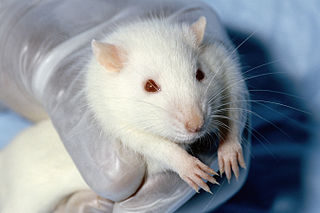
The Research Defence Society was a British scientific society and lobby group, founded by Stephen Paget, in 1908, to fight against the anti-vivisectionist "enemies of reason" at the beginning of the 20th century. At the end of 2008, after being active for 100 years, it merged with the communications group Coalition for Medical Progress to form the advocacy group Understanding Animal Research.
Gillian Rose Langley is a British scientist and writer who specialises in alternatives to animal testing and animal rights. She was, from 1981 until 2009, the science director of the Dr Hadwen Trust for Humane Research, a medical research charity developing non-animal research techniques. She was an anti-vivisection member of the British government's Animal Procedures Committee for eight years, and has worked as a consultant on non-animal techniques for the European Commission, and for animal protection organizations in Europe and the United States. Between 2010 and 2016 she was a consultant for Humane Society International.
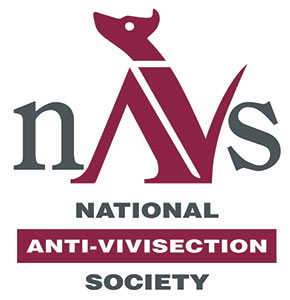
The National Anti-Vivisection Society (NAVS) is an international not-for-profit animal protection group, based in London, working to end animal testing, and focused on the replacement of animals in research with advanced, scientific techniques. Since 2006, the NAVS has operated its international campaigns under the working name Animal Defenders International (ADI), and the two groups now work together under the ADI name.

The Boyd Group is a Britain-based, independent think tank considering issues relating to animal testing.

The Brown Dog affair was a political controversy about vivisection that raged in Britain from 1903 until 1910. It involved the infiltration of University of London medical lectures by Swedish feminists, battles between medical students and the police, police protection for the statue of a dog, a libel trial at the Royal Courts of Justice, and the establishment of a Royal Commission to investigate the use of animals in experiments. The affair became a cause célèbre that divided the country.

Emilie Augusta Louise "Lizzy" Lind af Hageby was a Swedish-British feminist and animal rights advocate who became a prominent anti-vivisection activist in England in the early 20th century.
Women have played a central role in animal advocacy since the 19th century. The animal advocacy movement – embracing animal rights, animal welfare, and anti-vivisectionism – has been disproportionately initiated and led by women, particularly in the United Kingdom. Women are more likely to support animal rights than men. A 1996 study of adolescents by Linda Pifer suggested that factors that may partially explain this discrepancy include attitudes towards feminism and science, scientific literacy, and the presence of a greater emphasis on "nurturance or compassion" amongst women. Although vegetarianism does not necessarily imply animal advocacy, a 1992 market research study conducted by the Yankelovich research organization concluded that "of the 12.4 million people [in the US] who call themselves vegetarian, 68% are female, while only 32% are male".
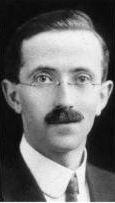
Douglas Macmillan MBE was a British civil servant, vegetarianism activist and founder of the Macmillan Cancer Support charity, now one of the largest charities in the UK.

Caroline White was an American philanthropist and anti-vivisection activist. She co-founded the Pennsylvania Society for the Prevention of Cruelty to Animals (PSPCA) in 1867, founded its women's branch (WPSPCA) in 1869, and founded the American Anti-Vivisection Society (AAVS) in 1883.
The New England Anti-Vivisection Society (NEAVS) is a national, registered 501(c)(3) nonprofit organization "dedicated to ending the use of animals in research, testing, and science education" and replacing them with "modern alternatives that are ethically, humanely, and scientifically superior."
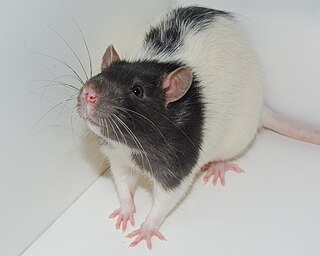
World Day For Animals In Laboratories is observed every year on 24 April. The surrounding week has come to be known as "World Week for Animals In Laboratories". The National Anti-Vivisection Society (NAVS) describes the day as an "international day of commemoration" for animals in laboratories.

Emanuel Edward Klein FRS was a bacteriologist who was born in Croatia and educated in Austria before settling in Britain. He is sometimes known as the father of British microbiology, but most of his work in microbiology, histology, and bacteriology was overshadowed during his life by his use of and apparently outspoken support for animal vivisection in physiological and medical experiments. His English was poor and during court questioning, many of the answers he provided were considered shocking.
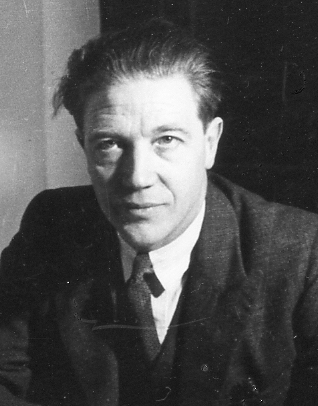
Wilfred Risdon was a British trade union organizer, a founder member of the British Union of Fascists and an antivivisection campaigner. His life and career encompassed coal mining, trade union work, First World War service with the Royal Army Medical Corps (RAMC), political and animal welfare activism.

George Fleming (1833–1901) was a Scottish veterinary surgeon and anti-vivisectionist. He was a prolific writer, and supported the passing of the Veterinary Surgeons Act 1881, which regulated the profession, in his time as President of the Royal College of Veterinary Surgeons.
Charles Emmanuel Reinhardt (1868–1920) was a British physician, animal welfare activist and anti-vivisectionist.
References
- ↑ Risdon, Wilfred. Lawson Tait - a Biographical Study. London: NAVS 1967
- ↑ Brown, Pamela. Animal research: the progressing change in attitude. http://www.tandfonline.com/doi/pdf/10.1080/02688867.1990.9726771